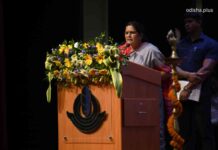Dr. Sourav Kumar Mishra
Breast cancer is the most commonly diagnosed cancer among females in India & world over. Contrary to the figures from western world where early breast cancers are much more common most of our patients are diagnosed at an advanced stage. This is because of the widespread availability of screening programmes in the west.

Screening is a diagnostic modality applied on healthy people to diagnose cancer at an earlier stage. All major cancer societies recommend annual screening mammography in females after the age of 40 years & screening MRI of the breasts in high risk population such as strong family history of breast and ovarian cancer. With screening; cancers can be diagnosed at an earlier stage and hence curable.

Looking back, the only modalities of breast cancer treatment were surgery, chemotherapy and Radiotherapy. However with advancements in cancer research the breast cancer armamentarium now includes targeted therapy, immunotherapy, hormonal therapy & specialized radiotherapy techniques. Precision oncology (curtailing therapy for individual patient needs) is in vogue. Unlike chemotherapy which is difficult to tolerate and with limited responses, precision medicines are pretty well tolerated with remarkable responses.

Trastuzumab, Pertuzumab & TDM1 are anti Her 2 agents used in cancers expressing Her 2 (a receptor known to accelerate cancerous growth) and have tremendously improved survival. Palbociclib, Ribociclib & Abemaciclib are newer agents used in breast cancer over expressing hormone receptors and significantly increase survival.

Immunotherapy has revolutionized the management of Triple negative breast cancers (without expression of targetable receptors). We now have the ability to target cancer genetics (Specific mutations that lead to cancer). Olaparib which targets deleterious BRCA mutations, has greatly improved outcomes of breast cancer patients with this mutation.

Gone are the days when with limited choices in cancer therapy only a handful survived beyond 1 year. With currently available modalities of treatment most advanced cancer patients now live longer beyond 3 – 5 years. Precision oncology has indeed transformed their lives.
(Writer is Consultant – Medical & Haemato Oncology, AMRI Hospital, Bhubaneswar. Views are Personal.)

























